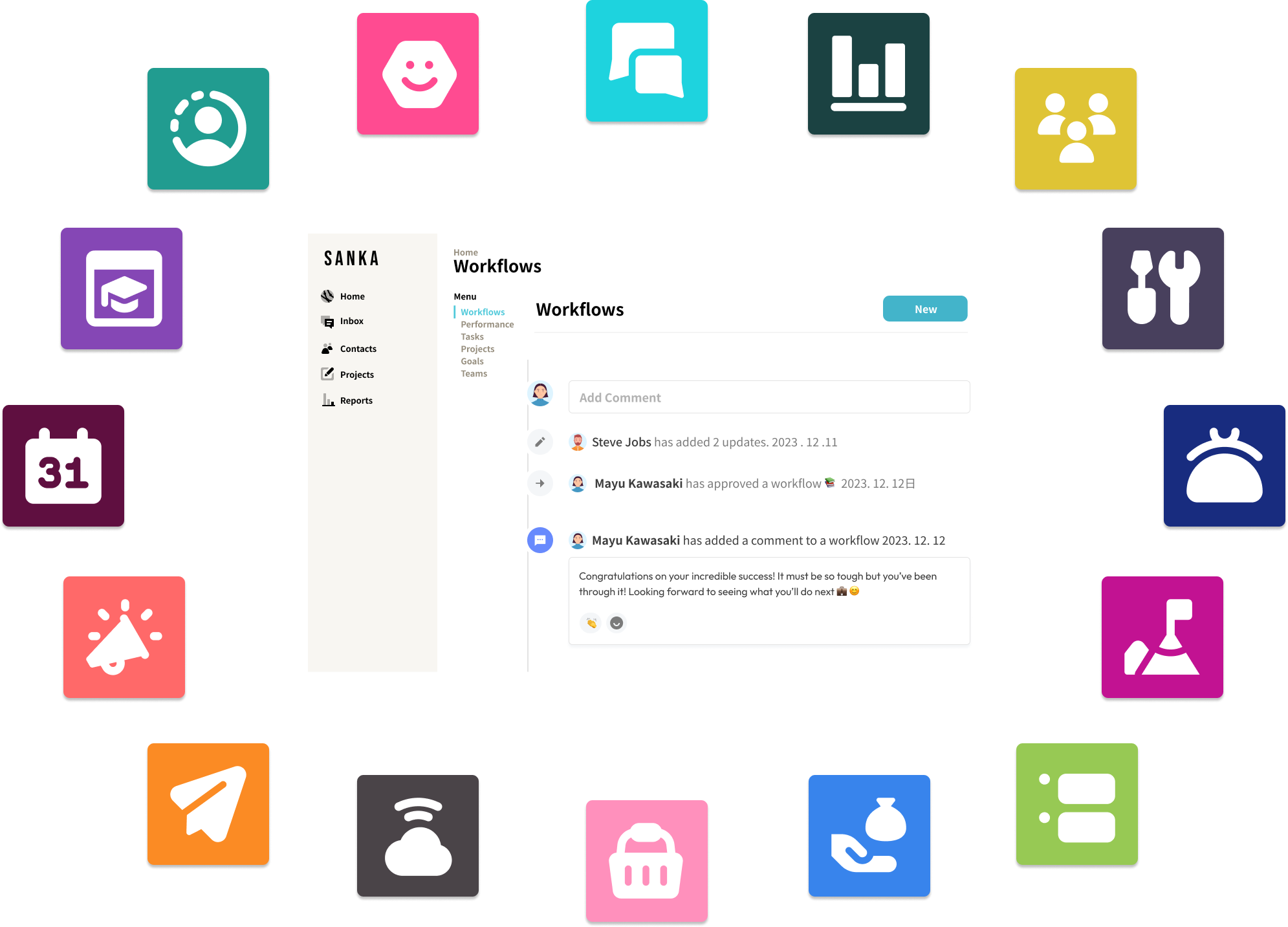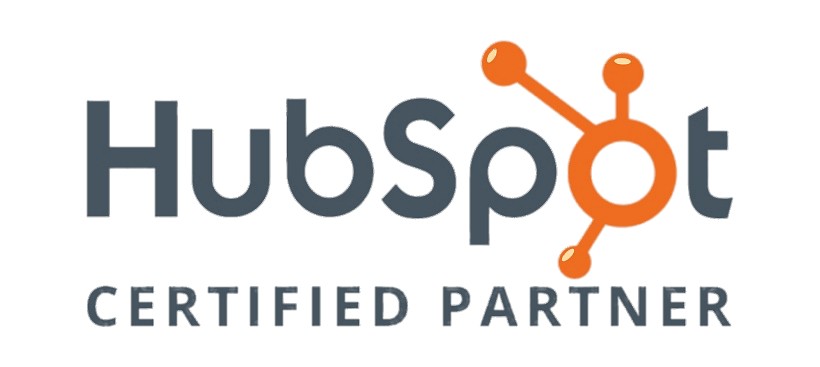Introduction
Artificial intelligence (AI) is transforming marketing. As consumers become more accustomed to personalized, predictive experiences, AI enables marketers to deliver sophisticated campaigns tailored to each individual.
Developing an effective AI marketing strategy is key for brands looking to stay ahead of the curve. Here are some tips for designing an AI marketing plan:
Sanka
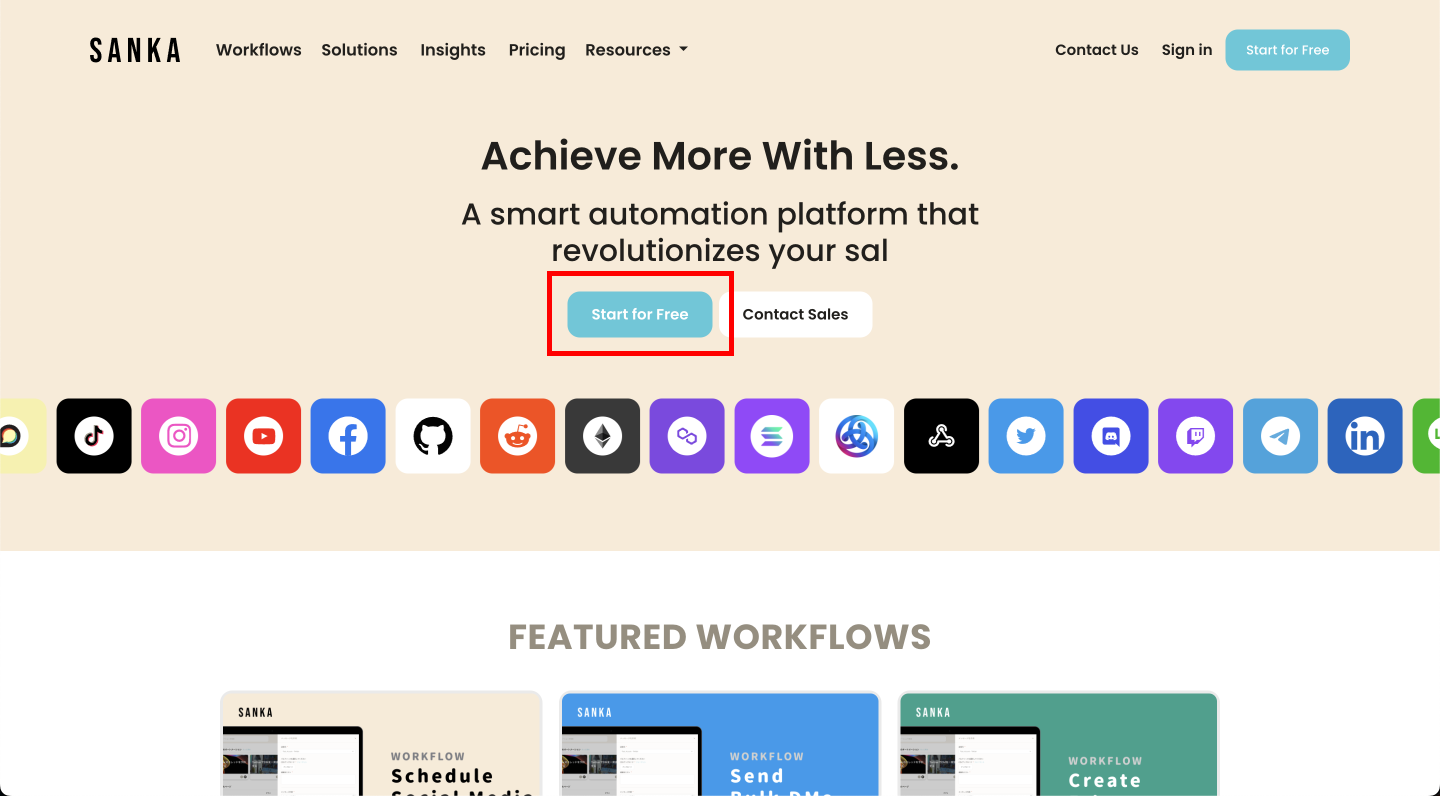
There are plenty of meaningful tools to help you on your journey of growing your social media, but Sanka combines all the best aspects of the other tools while providing you with automation that you can’t find on any other platform!
What Sanka Can Do
Task Automation
Feeling overwhelmed by the daily stream of repetitive tasks?
Sanka revolutionizes this aspect of your workday by automating repetitive tasks.
Rather than spending hours on activities that don't directly contribute to business growth, you have the chance to delegate this to Sanka's capable AI.
Greater Efficiency and Results
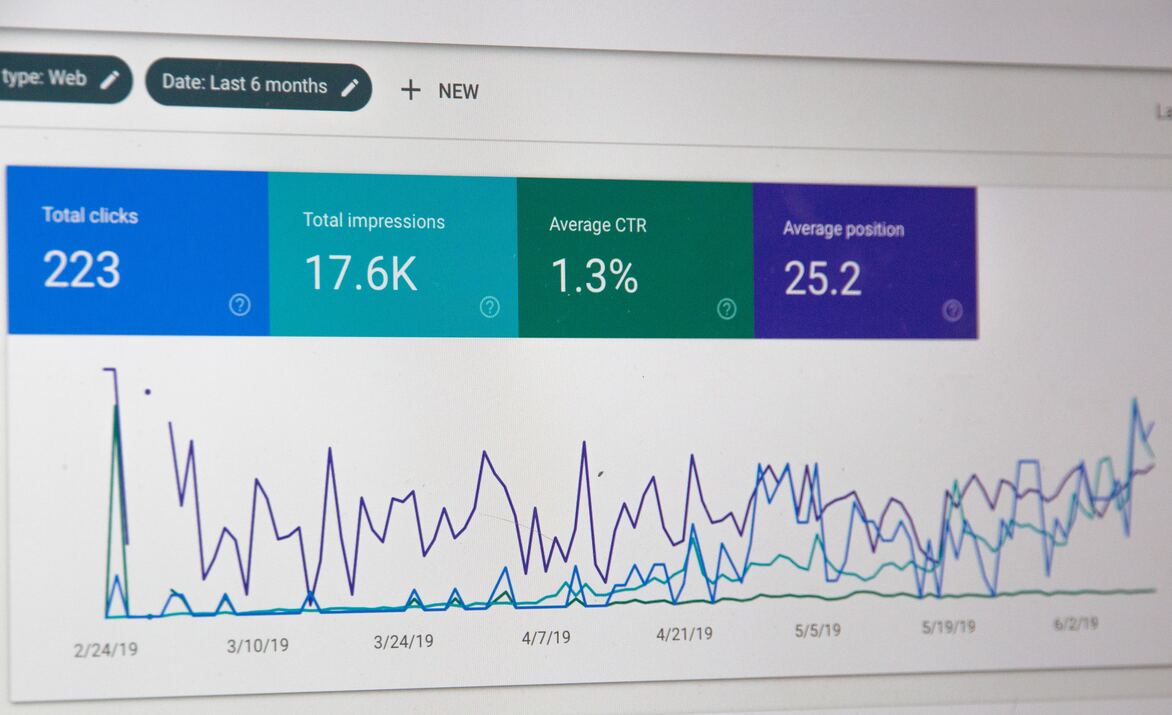
Effort and results aren't always directly proportional in business.
Sometimes, even enormous effort can yield minimal results due to the inefficient allocation of resources.
With Sanka, you can generate better results by getting tasks done in minutes, freeing up your time for higher-order strategies that will propel your business forward.
Streamlining Various Business Operations

Sanka is not just for marketers. Its application spans across different industries and sectors, including sales, recruiting, service provision, IT, and finance.
By offering automation in these areas, Sanka provides a universal solution that could potentially be beneficial for entire teams or even organizations.
Understand Your Audience Through Data

The foundation of any marketing strategy is understanding your target audience. AI allows you to develop rich customer profiles by processing large volumes of behavioral data.
Analyze demographics, psychographics, interests, purchasing history, and more to gain unique insights into customer needs and motivations. Look for patterns and segments that can inform campaign development and personalization.
Use Third Party Tools

Define Your Goals and KPIs
Be clear about what you want to achieve through AI marketing. Do you want to boost brand awareness? Increase sales?
Improve customer retention? Define specific, measurable goals and key performance indicators that will track your success. This focus will guide your strategy and help optimize your AI models over time.
Audit Existing Data and Tools

Take stock of the data sources and AI tools already at your disposal. This could include customer databases, past campaign results, web analytics, social media APIs, predictive lead scoring and churn models, chatbots, and more. Identify gaps where you need additional data or capabilities. The more quality data you can feed into your AI systems, the smarter they will become.
Build AI Capabilities In-House and/or Partner with Tech Providers
Once you know your goals and have assessed your data assets, decide if you will develop AI marketing capabilities in-house, partner with AI tech providers, or use a hybrid model. Building your own data science team allows for full customization but requires more investment. AI vendors offer pre-built tools you can use right away. Most brands use a mix, benefiting from provider expertise while still owning key assets.
Develop AI Marketing Use Cases

Brainstorm specific ways you can deploy AI across your customer lifecycle. AI use cases could include:
- Personalized product recommendations
- Predictive lead scoring
- Dynamic pricing
- AI-generated ad creative
- Next best offer modeling
- Churn prevention
- Automated customer service
Prioritize the highest impact areas and start small before scaling. The most successful AI rollouts focus on adding value for customers rather than seeking novelty.
Focus on the Human Experience

AI should enhance, not replace, the human touch in marketing. While AI handles data-driven optimization behind the scenes, the customer experience should still feel natural. Ensure your AI marketing strategies provide helpful, relevant suggestions without being creepy or intrusive. Marketing should feel like a conversation, not an imposition.
Choose Transparent AI

Many consumers distrust marketing that seems overly automated or opaque. Select transparent AI systems, where users can understand the logic behind recommendations or offers. Explainable AI earns greater trust and acceptance. Also be extremely cautious about data privacy and securing customer consent for AI usage.
Start Testing and Iterating

Once you've identified your initial AI applications, start testing and learning. Run A/B experiments to see what resonates best with customers. Monitor performance closely using your defined KPIs. Be ready to tweak algorithms frequently based on feedback and outcomes. AI marketing takes an agile, iterative approach versus rigidly sticking to fixed plans.
Keep Training Your AI

Treat your AI models like a member of your team who is constantly learning on the job. Expand your data sets, especially with new types of inputs like voice and video. Continuously retrain models on the latest data to keep improving. Stay on top of refinements from your tech partners. Ongoing training is crucial for long-term AI success.
Amplify with a Mix of Marketing Tactics
AI works best when complemented with a diverse marketing program. Use AI to optimize and personalize, then promote those experiences creatively across channels like social media, paid advertising, PR, events and more. The human touch remains important for brand building. AI targeting should be matched with compelling content.
Listen to Customers and Keep Adapting
Stay closely tuned to qualitative customer feedback and monitor for any signs of problems. If the AI is delivering irrelevant suggestions or alienating audiences, be ready to reassess. The best marketers combine AI insights with an intuition for customers' changing needs. Keep improving and adapting your strategy based on what you hear.
Integrate AI Throughout Your Technology Stack
To fully reap the benefits of AI in marketing, integrate it throughout your technology stack. Use AI-enabled customer data platforms, predictive analytics, campaign management tools, content management systems, and more. Connect siloed solutions to create an intelligent marketing ecosystem that learns from each interaction. This foundation empowers AI personalization at scale.
Commit to Data Ethics and Governance
With the power of AI comes great responsibility around data ethics. Be transparent about data collection and usage. Seek opt-in consent for AI utilization whenever possible. Secure customer data and protect privacy. Have humans monitor AI systems for bias. Build an ethics review process for new AI tools and campaigns. Responsible AI earns trust.
Ramp Up Your Team’s AI Skills
Your team may need upskilling to make the most of AI marketing. Offer training on AI applications and tools through online courses and certifications. Bring in data science experts to provide guidance. Update roles and workflows to leverage AI output. Nurture a culture of data-driven testing and optimization powered by AI. Change takes leadership.
Start with the Quick Wins
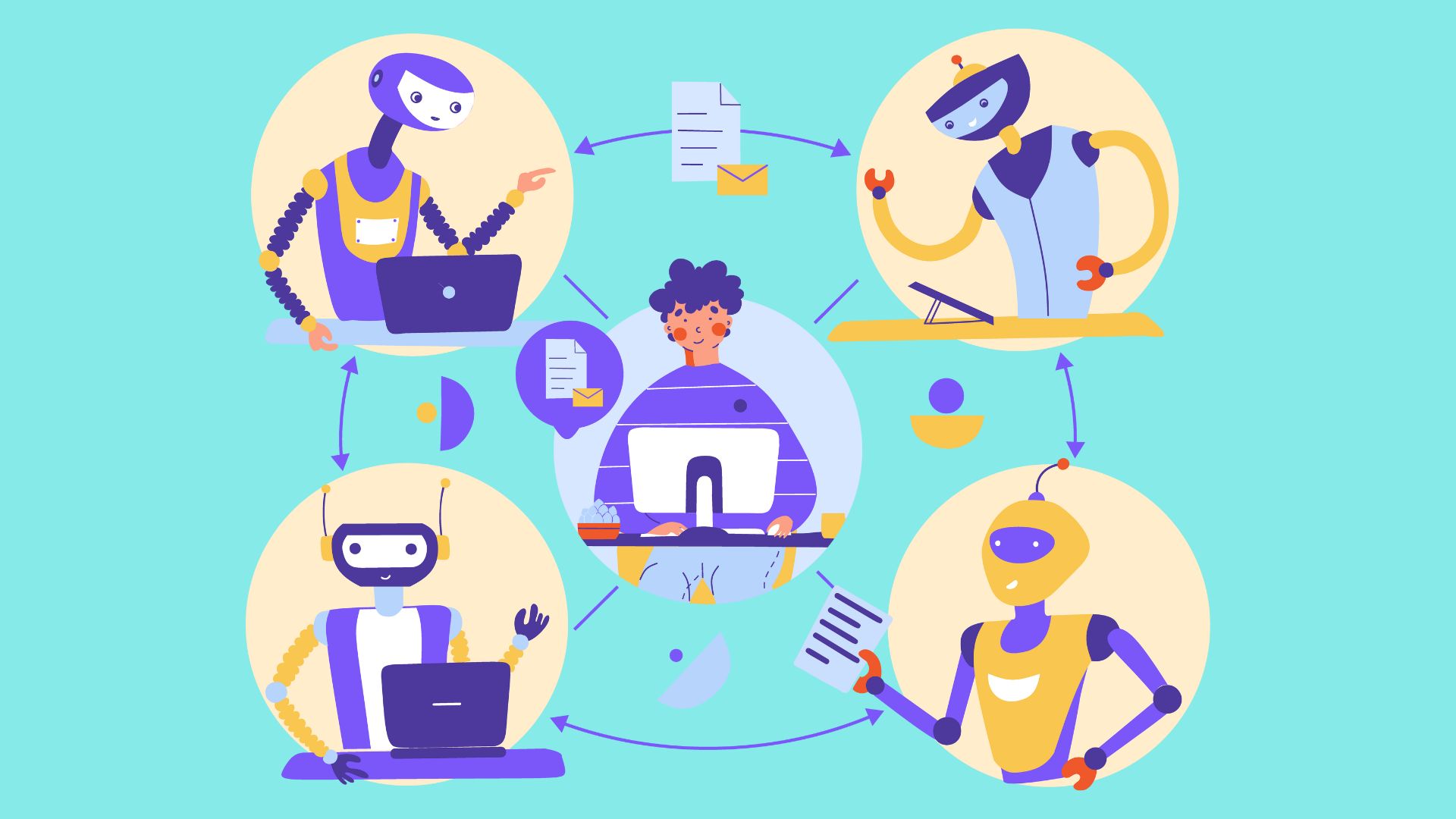
Identify some quick wins where AI can augment existing marketing processes for better efficiency or performance. Automate repetitive tasks where AI excels over humans. Personalize web experiences based on visitor segments. Use chatbots to handle common customer service queries. Go for the low-hanging fruit first before taking bigger leaps. Quick wins build confidence.
Measure Incremental Value
As you rollout AI capabilities, be sure to measure incremental value versus previous approaches. Rather than focusing just on total metrics, isolate the specific improvements driven by AI. This could include increases in response rate, conversion rate, customer lifetime value, or other gains directly attributed to AI optimization. Prove the ROI to secure continued investment.
Conclusion
Recognize that AI marketing is an ongoing journey, not a one-time project. Start building the capabilities now to realize future potential. As algorithms get smarter with more data, results will improve. What seems basic today could enable transformative applications down the road. Take an agile, iterative approach while playing the long game.
With deliberate planning and testing, artificial intelligence can transform marketing effectiveness. Approach AI as an enhancement to human creativity and empathy. Done thoughtfully, AI marketing builds lasting customer loyalty. By following these tips, you can develop an intelligent strategy tailored to your brand and audience.
